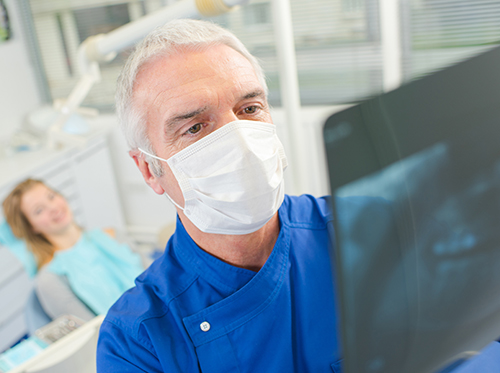Make your child’s next visit to our office great!
October 11th, 2023

If you have been bringing your baby in for regular checkups since that first tooth arrived, you might expect that he or she is already familiar with Drs. Rottschalk, Acker, and Froidcoeur and our staff. Often, though, months pass between visits, which is a very long time for a child. How can you make your preschooler’s return visit a happy one? We have some suggestions!
Before Your Visit
- Prepare your child for her visit. Simple explanations are best for a young child. You might tell your daughter that a dentist is a doctor who helps keep her teeth strong and healthy. Let her know a bit about what will happen. Being told, “You will sit in a special chair,” or, “Can you open wide so we can count your teeth?” will give her some idea of what it’s like to visit our office.
- There are many entertaining books for young children about visiting the dentist. Reading some of these to her for a few days before the appointment will let her know what to expect.
- Use playtime to prepare. You might count your daughter’s teeth or let her “play dentist” and brush the teeth of her favorite doll or stuffed animal.
When You Arrive
- Your attitude can be contagious! If you treat a visit to the dentist like any other outing, chances are your child will too. Your calm presence is exactly what your child needs.
- You might want to come a bit early to let your son explore the office. Bring a favorite toy or book to keep him entertained if you need to. A favorite stuffed toy can be a comfort in an unfamiliar place.
- If you are with your child during his checkup, follow our lead. Don’t be concerned if your child seems uncooperative at first or even throws a tantrum—we are used to working with children, and have techniques to make his experience as relaxed and as positive as we possibly can.
We Are Here to Help
We are your partners in your child’s dental care. Call our Fairview Heights, IL office anytime for suggestions about making your child’s visit a comfortable, comforting experience. Our goal is to start your child confidently on the road to a lifetime of empowering dental visits and lasting dental health.
Dental X-Rays: Are They Safe?
October 11th, 2023

X-rays have been a function of dental healthcare for a long time. That in and of itself should be good news, because it means we've had plenty of time to improve them. While there is always some risk in exposure to radiation, dental X-ray exposure has decreased significantly due to all the advances in technology. So there’s risk, but X-rays are quite safe.
Think of X-rays as you would about a car. Automobiles these days have all kinds of technology to make them as safe as possible. There's still a chance that you’ll suffer an accident. Would you stop using a car because of that risk? When it comes to dental X-rays, Drs. Rottschalk, Acker, and Froidcoeur and our team believe the positives clearly outweigh the negatives.
X-rays can be done digitally or with film. For film, X-rays require different exposures at different speeds to produce the image. Digital X-rays have software that automatically adjusts the exposure and produces the X-ray in a digital file. Since they substantially reduce your exposure to radiation, digital X-rays are the current standard in dental offices.
In addition to digital X-rays, lead aprons are an essential piece of X-ray safety. They help protect internal organs from X-rays by acting as a shield. They usually come with a thyroid collar as well, since that is one of the most vulnerable areas to X-rays in the body. Lead aprons can absorb up to 95% of any scatter rays that result from an X-ray. Not bad, right?
Although dental X-rays involve some radiation exposure (not all of it can be eliminated), so does everyday life. Getting too much sun, for example, can be dangerous. The truth is, we accumulate radiation in our bodies over a lifetime, so it’s worthwhile to be aware and avoid as much unnecessary exposure as possible. When it comes to your dental health, though, getting an X-ray — especially when your doctor says you need it — offers more benefits than risks.
Ask us about the type of dental X-rays we use during your next visit to our Fairview Heights, IL office!
Caring for Your Night Guard
October 4th, 2023

You might have experienced painful morning headaches. Or have a partner or housemate who begged you to please keep those grinding noises down at night. Or perhaps you were unhappily surprised to find that your teeth had mysteriously become worn, loose, or cracked.
So you made an appointment at our Fairview Heights, IL office. And you learned that you needed a night guard designed to protect your teeth from the damage done by night time bruxism—that grinding and clenching which is hard on enamel, bad for teeth, and painful for jaws. Good work!
Your night guard prevents your teeth from making contact, saving teeth and enamel from injury. It distributes the pressure placed on your teeth, muscles, and bones when your jaws clench through the night. Bonus: it can reduce nocturnal noises caused by grinding.
Guards are available over-the-counter in general sizes, or a custom night guard can be created for you by Drs. Rottschalk, Acker, and Froidcoeur. Custom guards are uniquely fitted to your teeth and jaw, and last longer than over-the-counter models. Whichever kind of appliance you choose, daily care is a must for a long and healthy partnership.
To make sure you get the best and longest use from your night guard, there are some easy steps to keep it in top shape when it’s off-duty.
- Keep It Clean
Plaque and bacteria can build up on your night guard just as they can on your tooth enamel. Rinse your guard in the morning and brush it gently. Ask Drs. Rottschalk, Acker, and Froidcoeur about using toothpaste, because toothpastes, especially abrasive toothpastes, can scratch your appliance. And don’t forget to clean your case!
Every week, or as directed, your night guard will benefit from a more serious cleaning. Follow the instructions for your appliance, whether it’s using cleaning tablets, a soaking solution, or another recommended cleanser. Your dentist can suggest how, how long, and how often to treat your night guard to a deep cleaning, because using the wrong products or cleaning methods can damage it.
- Keep It Dry
Putting a damp night guard into a closed case, even a ventilated one, provides an ideal setting for bacteria growth. Before you put your guard away, give it time to air-dry on a clean surface.
- Keep It Safe
Once your guard is clean and dry, make sure it keeps its shape and stays intact by keeping it in its clean, dry case when you’re not using it. Night guards and their cases are no fans of sun, extreme heat, very hot water, or (gulp!) dishwashers. A misshapen, melted, or broken night guard should not be used. If your night guard is damaged, it’s time to call us.
Spending just a moment or two each day caring for your night guard will result in a long-lasting appliance and many hours of healthy and comfortable sleep. Your night guard is protecting you. Be sure to return the favor for a long and healthy dental partnership.
Quit Smoking to Save Your Smile
October 4th, 2023

You have probably counted a hundred reasons to stop smoking. It’s unhealthy. It’s expensive. It annoys the people around you. You have to schedule your day around the next cigarette. But here’s reason number 101: Did you know that one of the many side effects of smoking is the damage it does to your smile?
Your Appearance
One of the most obvious results of smoking is the constant yellowing and discoloration of your teeth. Tobacco stains can take longer to remove with home brushing and whitening. And, while a professional cleaning and whitening will make a world of difference, all that good work is undone once you start smoking again.
More important, no smile looks its best with periodontal disease and tooth loss. Smoking has been linked to the presence of more harmful oral bacteria and higher occurrences of cavities and gingivitis (early gum disease). Periodontitis, or severe gum disease, is much more common among smokers. Tooth loss is also much more likely.
Healing after Dental Surgery
Smoking slows the healing process. It has been linked to a weaker immune system, so it’s harder to fight off an infection or to heal from one. And because of the harmful effect of smoking on bone tissue, there is a higher failure rate for dental implants among smokers. Bone density can be so compromised that an implant is not even an option.
Healing after Extractions
If you have a tooth extracted, the formation of a blood clot at the site of the removal is essential to avoid a condition called dry socket. Dry socket can lead to pain, serious infection, and other complications. Luckily, this clot is resilient and pretty hard to dislodge—unless you apply suction such as sipping through a straw or drawing smoke from a cigarette.
Oral Cancer
Research has shown that smoking is the single most serious risk factor for oral cancer. The good news is that this risk is cut dramatically if you quit!
Let Drs. Rottschalk, Acker, and Froidcoeur help you maintain your smile. We can offer many more reasons to give up the smoking habit, and we are happy to offer suggestions for quitting during your next visit to our Fairview Heights, IL office. We want to protect your smile and your health as well. It doesn’t really matter which number on the list finally leads you to quit—every number on that list is your lucky number!





